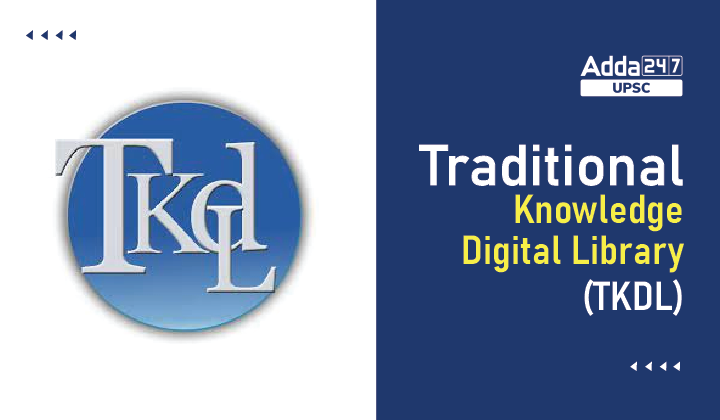Table of Contents
Traditional Knowledge Digital Library (TKDL)- Relevance for UPSC Exam
- GS Paper 2: Governance, Administration and Challenges- Government policies and interventions for development in various sectors and issues arising out of their design and implementation.
Traditional Knowledge Digital Library (TKDL) in News
- Recently, the Cabinet chaired by the Prime Minister has approved the “Widening access of the Traditional Knowledge Digital Library (TKDL) database to users, besides patent offices.
Significance of Widening Access to TKDL
- The opening up of the TKDL database to users is an ambitious and forward-looking action by the Government of India.
- The opening up of the TKDL is also envisaged to inculcate thought and knowledge leadership through Bharatiya Gnana Parampara, under the New Education Policy 2020.
- It lays emphasis on integrating and co-opting traditional knowledge with current practices towards enhancing innovation and trade.
- The TKDL will act as an important sources of TK information for advancing knowledge and technology frontiers.
- The current contents of TKDL shall facilitate wider adoption of Indian traditional medicines, while also propelling new manufacturers and innovators to gainfully build enterprises based on our valuable knowledge heritage.
Traditional Knowledge Digital Library (TKDL)
- About: The Traditional Knowledge Digital Library (TKDL) is a prior art database of Indian traditional knowledge established in 2001.
- Mandate: Primary mandate of TKDL is to prevent grant of wrong patents on Indian traditional knowledge.
- The TKDL database will also push creative minds to innovate for better, safer and more effective solutions for a healthier and technology endowed population.
- Implementing Body: Traditional Knowledge Digital Library (TKDL) is managed jointly by the Council of Scientific and Industrial Research (CSIR) and Department of Indian Systems of Medicine and Homeopathy (ISM&H, now Ministry of AYUSH).
- Accessibility: Until now, access to the complete TKDL database is restricted to 14 Patent Offices worldwide for the purposes of search and examination.
- This defensive protection through TKDL has been effective in safeguarding Indian traditional knowledge from misappropriation, and is considered a global benchmark.
- Accessibility Fee: The access to the TKDL database would be through a paid subscription model with a phase-wise opening to national and international users.
Traditional Knowledge Digital Library (TKDL)- Key Features
- The TKDL is a first of its kind globally and has been serving as an exemplary model to other nations.
- The TKDL currently contains information from existing literature related to ISM such as Ayurveda, Unani, Siddha, Sowa Rigpa and Yoga.
- The information is documented in a digitized format in five international languages which are English, German, French, Japanese and Spanish.
- TKDL provides information in languages and format understandable by patent examiners at Patent Offices worldwide, so as to prevent the erroneous grant of patents.
WHO Global Centre for Traditional Medicine in India




 TSPSC Group 1 Question Paper 2024, Downl...
TSPSC Group 1 Question Paper 2024, Downl...
 TSPSC Group 1 Answer key 2024 Out, Downl...
TSPSC Group 1 Answer key 2024 Out, Downl...
 UPSC Prelims 2024 Question Paper, Downlo...
UPSC Prelims 2024 Question Paper, Downlo...





